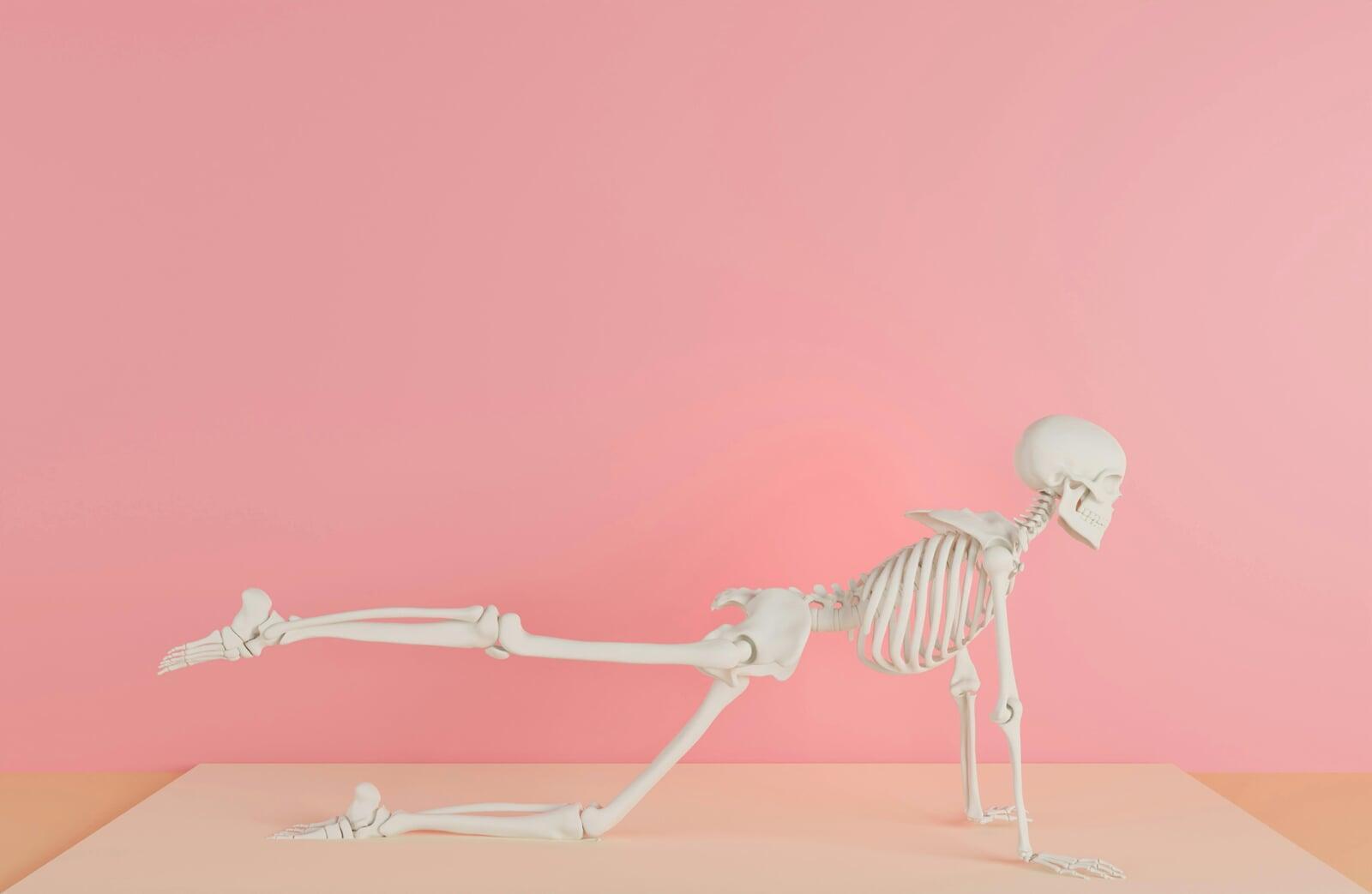20 October is World Osteoporosis Day.
Osteoporosis isn’t just about bone density—it’s about confidence, independence and avoiding preventable hospital trips. Stronger bones, steadier balance and small daily routines make home life safer and more predictable.
We've prepared a short practical guide to what helps at home in our experience.
The short version
- Know your risk. Previous fractures, long-term steroids, very low body weight, early menopause, smoking, some long-term conditions and family history all increase risk.
- Ask your GP about a DEXA scan if you're over 50 with risk factors (or after a low-impact fracture) - we can help with this.
- Do the basics well: bone-friendly food, safe sunlight/GP-advised vitamin D, regular weight-bearing movement, and a home that doesn't trip you up.
- Team up: GPs, physios or exercise physios, OTs and dieticians each hold a piece of the puzzle. Good teams prevent breaks, not just treat them.
How home care fits
Most fractures happen in ordinary places - bedrooms, bathrooms, paths you've walked a thousand times. That's why the home is the best place to get practical.
1. Movement that helps (and actually happens)
You don't need a gym; you need a routine. A phsyio or exercise physio can tailor a plan that fits your health and preferences.
- Weight-bearing: short walks, sit-to-stands from a sturdy chair, gentle stairs, light gardening.
- Strength: 2-3 times a week with body weight or light bands/weights.
- Balance: heel-to-toe along the kitchen bench, single-leg stands with support, simple Tai Chi sequences if you enjoy them.
Make it stick: pair moves with everyday moments - stand during TV ad breaks, balance while the kettle boils, stroll to collect the mail.
2. Food and vitamin D - keep it ordinary
Big overhauls rarely last; consistent basics do.
- Calcium on the plate: milk, yoghurt, cheese, tinned salmon/sardines with bones, tofu set with calcium, leafy greens.
- Vitamin D: safe sun exposure for your skin type/season; take supplements only if your GP advises.
- Protein: muscles are your shock absorbers - include a protein source at each meal.
A dietician can tune this around appetite, budget and other conditions.
3. Medicines and monitoring
Some medicines affect bone strength; others improve it.
- Bring an up-to-date medicines list to your GP or pharmacist for a review.
- After a minimal-trauma fracture, ask about fracture liaison services and long-term bone-strengthening options.
- Keep up eye tests and footwear checks - seeing well and feeling stable matter as much as calcium.
4. A home that doesn't pick fights
No renovations required. Most wins are small and subtle.
- Light: clear paths from bed to bathroom; night-lights where useful.
- Clutter: cords tucked away, clutter off the floor.
- Bathroom: non-slip mat you actually like (so you'll use it); towels within easy reach.
- Outdoors: sweep leaves, clear moss, note which paths stay slippery after rain.
If you live with vision changes, an OT can add contrast (dark placemats on a light table for example) so depth is easier to judge.
After a fall (or a near-miss)
A "nearly fell" is as useful as a fall.
- Write down what happened: time, surface, footwear, lighting, rushing or not, any dizziness.
- Tell your GP/physio. Early pattern-spotting prevents bigger problems.
- Check recent medicine changes.
- Change one thing at home straight away - better light, clearer path, different shoes for that task.
Conversation starters for your next GP visit
- "I'm over 50 and had a wrist fracture from a small fall - should I have a DEXA scan?"
- "Can we review medicines that might affect balance or bone?"
- "Would physio input help with balance?"
- "Do I meet criteria for a bone-strengthening treatment, and what does follow-up look like?"
Where carer support makes the difference
- Movement that happens: Carers can cue the physio plan during ordinary moments - sit-to-stands while the kettle boils, a short walk, balance along the kitchen bench. Gentle prompts keep the routine going without feeling like a workout.
- Food that supports bones (and gets eaten): Help with a simple, calcium-friendly shop and a few easy staples - tinned fish, yoghurt, leafy greens - means meals don't depend on energy levels that day. If vitamin D is GP-recommended, Carers can remind and record, so everyone stays on the same page.
- Safer pathways, fewer near-misses: On regular visits, Carers notice the niggly things - dim hall lights, leaves on the back steps, a mat that curls at the corner - and fix or flag them. Small, quick changes beat big renovations.
- Paperwork and appointments, minus the scramble: Reliant Coordinators and Carers keep a current medicines list, know when reviews are due and can organise transport to GP/DEXA appointments. After appointments, they help put the plan into practice (timings, reminders).
- Clear communication with family and clinicians: With consent, Coordinators and Carers can share short, factual updates: "two near-misses this week on the back path", "walked further today without a rest", "sleeping better". This clarity helps GPs, physios and families adjust early.
- Breathers for family: Even a few hours' support gives family carers space to work, rest or run errands - so the week feels manageable and the tone at home stays calm.
Talk to Us
If you'd like practical home support that quietly strengthens bone health and balance - without turning the house into a clinic - we can help coordinate the pieces and provide Carers who work to your rhythm.
Remember - if anything's urgent - call 000.

